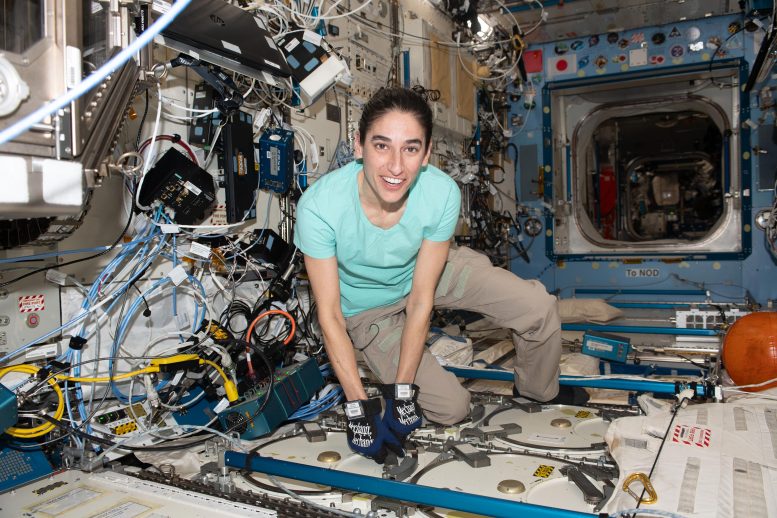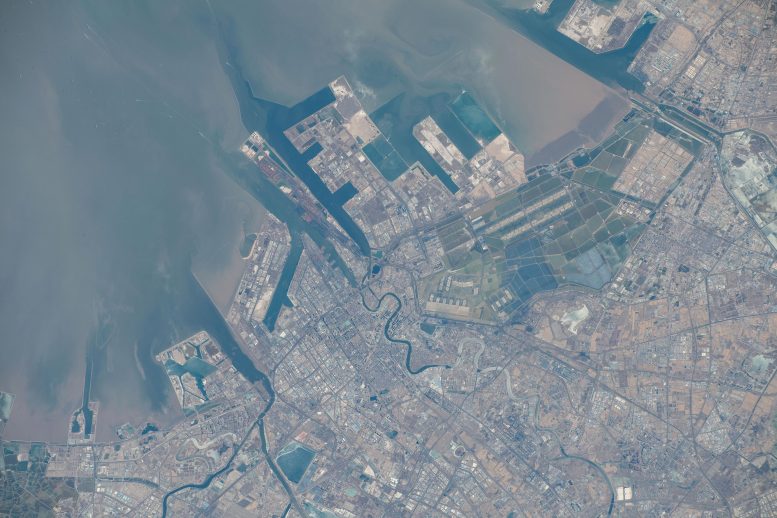
NASA astronaut and Expedition 70 Flight Engineer Jasmin Moghbeli is pictured inside the International Space Station’s Destiny laboratory module opening a science freezer that hosts research samples for preservation and analysis. Credit: NASA
Stem cell research carried into Friday as the Expedition 70 crew members worked to wrap up an experiment that began earlier in the week. As science continued aboard the International Space Station, a cargo craft is currently in orbit preparing to approach the orbiting laboratory for an automatic docking scheduled for the early morning hours on Saturday.
Two cosmonauts, Flight Engineers Oleg Kononenko and Nikolai Chub, are gearing up to be on duty monitoring the automated docking of the Progress 87 cargo craft, which launched from the Baikonur Cosmodrome in Kazakhstan at 10:25 p.m. EST on Wednesday, February 14. Loaded with nearly three tons of food, fuel, and supplies, Progress is scheduled to dock to the station at 1:12 a.m. Saturday, February 17. Kononenko and Chub spent Friday preparing for the upcoming cargo delivery by reviewing telerobotically operated rendezvous unit (TORU) procedures, which allows them to remotely control an arriving spacecraft in the unlikely event it could not automatically dock.

A portion of the Pamir Mountains, a mountain range at the northwest junction of the Himalayas and crossing several Central Asia countries, is pictured from the International Space Station as it orbited 261 miles above Uzbekistan. Credit: NASA
Ongoing Experiments in Microgravity
In the Kibo Laboratory, another day of stem cell research was underway for four orbital residents. Throughout the morning, NASA astronaut Loral O’Hara, with assistance from JAXA (Japan Aerospace Exploration Agency) Flight Engineer Satoshi Furukawa, processed samples inside the Life Sciences Glovebox for the Microgravity Associated Bone Loss-A (MABL-A) investigation. The duo carried out the experiment to help scientists assess the effects of microgravity on bone marrow stem cells, which may provide a better understanding of space-caused bone loss and aging-related bone conditions on Earth.
NASA astronaut Jasmin Moghbeli, with assistance from ESA (European Space Agency) Commander Andreas Mogensen, then took over the work with MABL-A, sampling additional stem cells throughout the afternoon.

The port of Tianjin, China, on the Bohai Sea, a city with a population of over 13.8 million and known for its high scientific output, is pictured from the International Space Station as it orbited 262 miles above. Credit: NASA
Maintenance and Additional Research
O’Hara also spent some time conducting maintenance in the Bishop Airlock. Furukawa removed old and installed new CO2 units in Kibo’s gas supply equipment, Moghbeli conducted some orbital plumbing, and Mogensen analyzed some bacteria samples that were collected earlier in the week.
In the Roscosmos segment, Flight Engineer Konstantin Borisov ran a distillation cycle on the water processing unit. Later on, he conducted an experiment to analyze Earth’s nighttime atmosphere in near-ultraviolet.
>>> Read full article>>>
Copyright for syndicated content belongs to the linked Source : SciTechDaily – https://scitechdaily.com/unlocking-the-secrets-of-bone-loss-in-zero-gravity/










